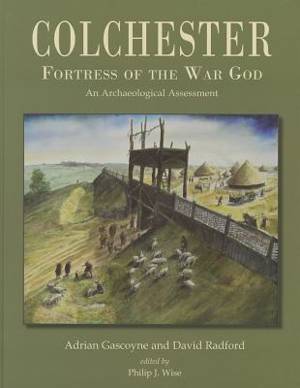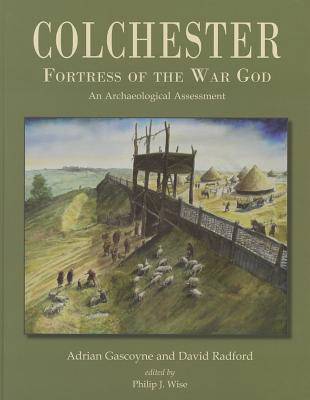
- Retrait gratuit dans votre magasin Club
- 7.000.000 titres dans notre catalogue
- Payer en toute sécurité
- Toujours un magasin près de chez vous
- Retrait gratuit dans votre magasin Club
- 7.000.0000 titres dans notre catalogue
- Payer en toute sécurité
- Toujours un magasin près de chez vous
62,95 €
+ 125 points
Description
This volume is a critical assessment of the current state of archaeological knowledge of the settlement originally called Camulodunon and now known as Colchester. The town has been the subject of antiquarian interest since the late 16th century and the first modern archaeological excavations occurred in 1845 close to Colchester Castle, the towns most prominent historic site.
The earliest significant human occupation recorded from Colchester dates to the late Neolithic, but it was only towards the end of the 1st century BC that an oppidum was established in the area. This was superseded initially by a Roman legionary fortress and then the colonia of Camulodunum on a hilltop bounded on the north and east by the river Colne. There is little evidence for continuing occupation here in the early post-Roman period, but in 917 the town was re-established as a burgh and gradually grew in importance. After the Norman Conquest, a castle was built on the foundations of the ruined Roman Temple of Claudius, and a priory and an abbey were established just to the south of the walled town.
Although the town, as elsewhere, was affected by the Dissolution of the Monasteries and the English Civil War it remained essentially medieval in character until the 18th century. During the 19th century this process of change was accelerated by the arrival of the railway, industrialisation and the establishment of the military garrison.
Since the 1960s Colchester has been subject to recurring phases of re-development, the most recent having ended only in 2007, which have had a significant impact on the historic environment. Fortunately the town is one of the best studied in the country.
The earliest significant human occupation recorded from Colchester dates to the late Neolithic, but it was only towards the end of the 1st century BC that an oppidum was established in the area. This was superseded initially by a Roman legionary fortress and then the colonia of Camulodunum on a hilltop bounded on the north and east by the river Colne. There is little evidence for continuing occupation here in the early post-Roman period, but in 917 the town was re-established as a burgh and gradually grew in importance. After the Norman Conquest, a castle was built on the foundations of the ruined Roman Temple of Claudius, and a priory and an abbey were established just to the south of the walled town.
Although the town, as elsewhere, was affected by the Dissolution of the Monasteries and the English Civil War it remained essentially medieval in character until the 18th century. During the 19th century this process of change was accelerated by the arrival of the railway, industrialisation and the establishment of the military garrison.
Since the 1960s Colchester has been subject to recurring phases of re-development, the most recent having ended only in 2007, which have had a significant impact on the historic environment. Fortunately the town is one of the best studied in the country.
Spécifications
Parties prenantes
- Auteur(s) :
- Editeur:
Contenu
- Nombre de pages :
- 352
- Langue:
- Anglais
- Collection :
Caractéristiques
- EAN:
- 9781842175088
- Date de parution :
- 19-07-13
- Format:
- Livre relié
- Format numérique:
- Genaaid
- Dimensions :
- 213 mm x 277 mm
- Poids :
- 1973 g

Les avis
Nous publions uniquement les avis qui respectent les conditions requises. Consultez nos conditions pour les avis.






